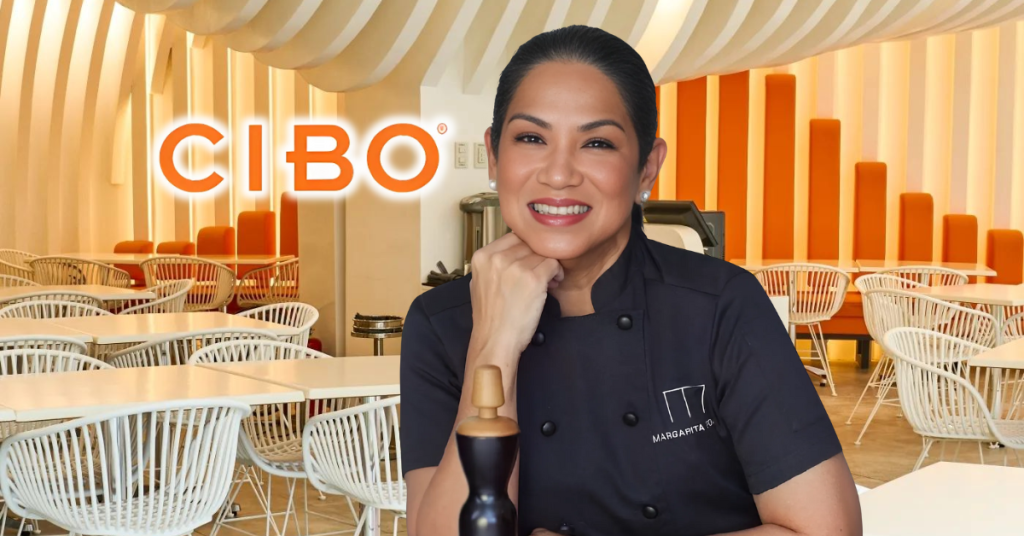Before she became one of the Philippines’ most celebrated chefs and the founder of the beloved Italian restaurant chain CIBO, the late Margarita Forés never imagined she’d build a life around food. In fact, her earliest career dreams revolved around fashion—not flavor.
“I was a regular young Filipina from Assumption and was a super food lover because my family is Ilonggo, so our lives revolved around Ilonggo food and celebrating around the table,” she once recalled.
But everything changed when her family left the Philippines during the martial law era, relocating to New York City. It was there—amid the energy and evolution of the 1970s food scene—that Forés unknowingly began the journey toward her true calling. “New York was such a big melting pot… all the trends, all the new places were there,” she said. “That was a real blessing because I experienced a lot.”
At the time, New York was undergoing what she called an “Italianization”—a movement marked by the rise of modern Italian cuisine. Unlike stereotypical red-and-white tablecloth Italian-American eateries, the city’s new generation of restaurants served thin-crust pizzas, fresh pasta, and minimalist, northern Italian flavors. It was fresh, exciting, and inspiring.
She soon landed a job with Valentino, the iconic Italian fashion house. “Working for such an iconic Italian brand taught me a lot about how to build a brand,” she said. “It also made me fall in love even more with Italian culture and the Italian sensibility.”
By day, she clipped press mentions and assisted with errands. But at night, her heart was elsewhere: in the kitchen, cooking for friends and experimenting with pasta. “I love the fashion part of the business,” she admitted, “but what I was doing at night was what really made me happy… cooking and setting the table. That’s what really excited me.”
In 1985, tragedy struck—her grandfather passed away, prompting the family to return to Manila. “I kind of felt, ‘Oh my God, it stopped everything I was doing, everything I was getting excited about,’” she recalled. The following year, after the EDSA Revolution, Forés decided to pursue her growing passion for cooking.
“I told my mom, ‘I really want to do this cooking thing. Will you allow me to find a teacher in Italy and take cooking courses?’” Her mother agreed.
That decision led her to Florence, where she spent months immersing herself in Italian cuisine—attending cooking classes in the mornings, taking language lessons in the afternoons, and exploring open-air markets for ingredients. “I was there for only four months,” she said, “but what was more effective in making me fall in love with what I was doing was that I was by myself… it was a time of introspection.”
She didn’t stop in Florence. Forés traveled throughout Italy—driving solo from region to region, cooking with local signoras, and discovering the soul behind Italian food. “I love fashion,” she said, “but the feeling I got every time I was in front of a stove cooking for people was real. It was a way to fulfill the maternal instinct within me—the idea of being a nurturer and making people happy through food.”
Returning to Manila with fire in her soul and flour on her hands, Forés eventually launched CIBO in 1997. Her commitment to authenticity and heartfelt cooking helped redefine how Filipinos experienced Italian cuisine.
Looking back, she once joked: “Maybe I was Italian in my past life.”
Margarita Forés passed away in February 2025, but her legacy lives on—in every plate of pasta, in every home cook she inspired, and in every Filipino who learned that food can be a calling, not just a craft. She didn’t just cook; she created joy, built bridges between cultures, and nurtured a nation with her passion.
This article includes quotes from an interview originally published by Esquire Philippines, authored by Henry Ong.
![]()



